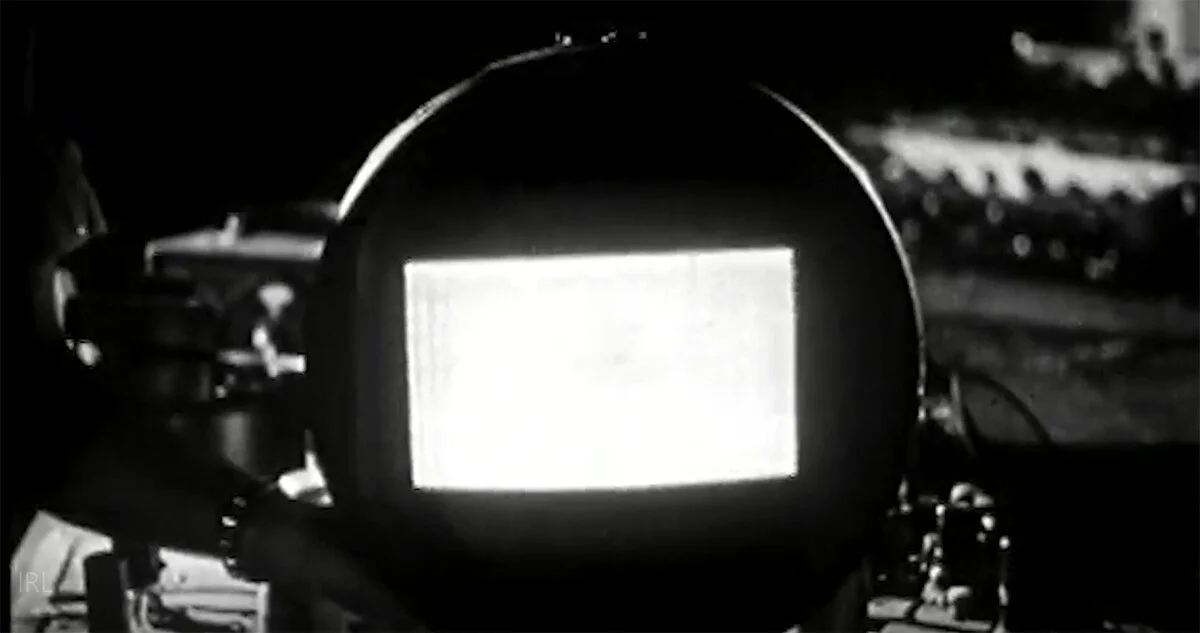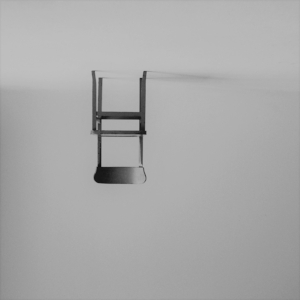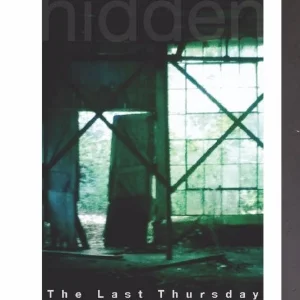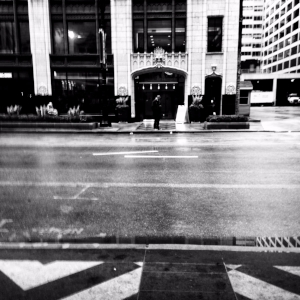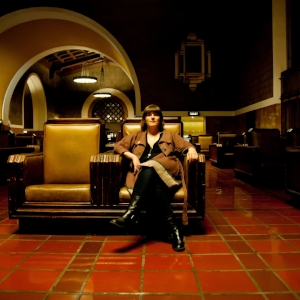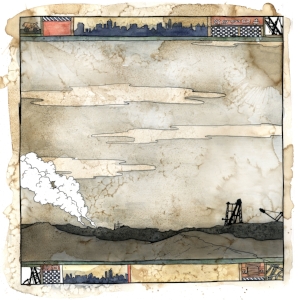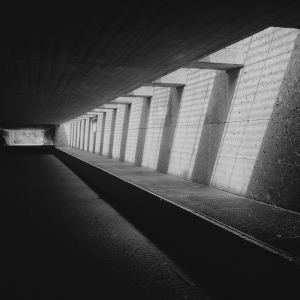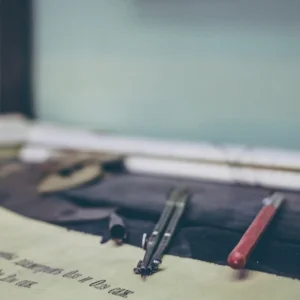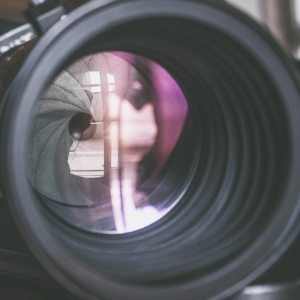Tape Extracts:
Taken from the print version of this piece, which appeared on YourClassical.
Morgan: Ai-Ling and I were both working on a film by Cameron Crowe called We Bought a Zoo. I was working at Fox and I was brought onto the show by one of the mixers, Doug Hemphill, who had worked with her and thought she'd be perfect as a sound designer for the film. I was already supposed to be the sound supervisor on it and I was going to supervise with another person, but [that other person] couldn't do it. So as we were working really well together, I asked her if she wanted to supervise it with me and she said yes — so that was the first time we worked together as a sound supervising team. Since then we've done four [including] La-La Land, and now we're also working on Battle of the Sexes, which is about the Billie Jean King versus Bobby Riggs tennis match.
Could you briefly explain the difference between a supervising sound editor and the distinctions that get broken down in the final credits?
Lee: I would think a supervisor would have more of a direct relationship with the filmmakers: going to meet with them to discuss ideas to see how the sound can help with the storytelling and to try to take everyone's ideas, including your own, and work on it to make it come to fruition. Typically in a sound editorial department for features it's composed by a team of sound editors; mainly broken up into dialogue, ADR [dialogue re-recorded for better sound quality], effects, and Foley. So, the sound supervisor would then coordinate with sound editors to try to achieve the vision of the filmmakers — and sometimes the sound supervisor also edits the sounds together or gathers everyone's work together to present it.
How does your collaboration work?
Morgan: Usually when we supervise together I focus on dialogue and ADR — all the spoken words, for the most part — and Ai-Ling deals with sound design, sound effects, backgrounds. Then there's usually a Foley person or a Foley supervisor, but she supervises that Foley supervisor to tell him what the director wants because the first thing we do is meet with the director and picture editor and we have a spotting session and we play the whole movie and take notes and they give us their vision of how it should sound.
So, what were your first thoughts when you saw La La Land?
Lee: You could tell, even early on, with how it's shot, the directions, the choices that [director] Damien [Chazelle] made, and all the beautiful original music that it was going to be a really beautiful, personal movie. It's a very brave choice for Damien.
Do you approach a film like this any differently than, say, Planet of the Apes, or any of the big-budget superhero films you've done? Is the process any different?
Morgan: Well, I think any time we approach a film and start working on a film you have to think okay, what is the style of the film? What is, as you said, the palette? What is the mood of the film? The textures of the film? And we do the sound work according to that.
In the case of La La Land, because [Chazelle] made it very clear that he wanted the sound to be very naturalistic and then had to seamlessly transition into the musical numbers, on my side, because I was doing dialogue and ADR, I tried really hard to use all the production sound that was recorded with the images and not replace a lot of it with ADR and dubbing — because I knew that he didn't want that, he wanted to sound real. Even with the singing there were several places where the singing was done live on set, for the more emotional numbers like her audition number at the end.
I did cover some of that in ADR, but sometimes I would just use a word or a syllable so that I could keep as much of the production as possible. But, on other movies, like Planet of the Apes or an action film, you know they're going to use a lot of ADR and you cover it and you record all the ADR and you try to get it in the movie. But, in this case I held back — I really tried to make all the production [dialogue] work and [with] Andy Nelson we decided we can make this production work, even though it sounds really noisy. We're just going to make it work and maybe sprinkle in a couple of words of ADR. That helped anchor the film and keep it in reality until it took flight and went into a musical fantasy world.
It really did. It didn't feel separated out like some musicals can — you get that feeling of the space in the room not being manufactured.
Lee: They wanted to make sure the music doesn't sound too Broadway-ish, so having a live recording helps ground it too.
Did it change how you worked, rather than if you had everything contained from studio recordings?
Morgan: Certain things. For example, the duet number where they're dancing overlooking Los Angeles, the first dance they have together where she's wearing the yellow dress; that duet goes from production speaking and there of course is background sounds, the noises of Los Angeles.
Ai-Ling put more backgrounds on it and then it transitions into the musical, but I don't know if it's Ryan Gosling's voice or the way it was recorded (possibly), but the quality of his [studio-recorded] voice was very similar to the quality of the production, and so it was this gradual transition. So, on my side I had to make a background fill of the noisy background that was with the dialogue. And we continue that over the transition to the music, and Ai-Ling did the same thing with her sound effects.
Lee: Yeah, basically for that scene I would maintain the background, the city sounds, and insects through their singing and as the song goes they slowly taper down so that the music would take more precedent. So, we established Foley cloth movement, back movement, footsteps, hand grabbing the lamppost, and stuff like that that helps ground them rather than just prerecorded singing voices. The Foley helps make it feel like it's a live recording, that they're really singing there.
How do you pinpoint those moments?
Lee: With a musical you have to be very selective. Even when you edit these Foley, you have to be really careful to make sure they are in rhythm to the music rather than too much in sync sometimes because your eyes can fool you because your brain just connects to the rhythm rather than what you see and sync sometimes. And, of course the pitch and tone of the sound, it should not clash with the music. Otherwise either they just get lost in [the music] or just poke out like a sore thumb.
For the opening number, even though every so often the dancers would be walking around while dancing, we were careful not to play all of the [footsteps] all the time, it's only used to accentuate the music or a particular move that you see. And Damien is very specific about that. He's very meticulous, down to almost an exact science — so even though sometimes, like in the middle of the traffic song, a group of them are dancing on the cars, we did not play that because sometimes those sounds may overpower the music. For those I opt not to play up the stomps at all, but later on in the traffic song when you see the wide shot of all the dancers on top of the cars, for that area I played some of their stomping and dancing on the car roofs.
That's after they introduce the percussion band in the truck, right? Which kind of justifies a shift in the sound.
Lee: Yes, yes. So you know, things like that — or even like the crowd, suddenly you hear them cheering and clapping in rhythm to the music. Little moments like that helps ground it and actually makes it more fun on the track.
Is working with someone who has that sort of sensibility you talked about, where he's really specific on what the sound is going to do, different than someone who maybe doesn't seem to really know how to talk about it?
Morgan: Sure, because sometimes you work with directors who will give you some notes but they're not very specific. And then it's up to you to bring them something, and then once there's something in front of them they can bounce off of what you've shown them or played for them and then they give you notes on that and you build from there. But with Damien...I mean, there was a really nice give-and-take, but he started off every scene and told us what he wanted. Then it would evolve, but we would usually start with that.
Lee: He would tell us what he would like to have, his vision. In the opening sequence, for example, he wants to slowly build up the horns and the car radio, built into this cacophony of sound, real sounds, and then through that the musical number comes in. So he would say "I want to make sure people know it's in a traffic jam. The cars are standing still," so he doesn't want to hear any sounds of cars driving by, just cars idling, not any kind of moving since we were trying to sell through a soundscape to the audience that we are in a traffic jam in Los Angeles without seeing it visually until later on when the camera pans down to the individual cars.
From the very beginning, when you introduced Mia and Sebastian you articulated who they were and who they were going to be through their sounds so she's driving a Prius, very clean and sort of non-disruptive — whereas he's driving an old car that's loud and he's rewinding tape and making all these sort of noises until he honks at her and it's like that archetypes how they're going to come together. Was that the forethought going into it, or was it that just worked for the opening?
Morgan: I'm sure that that's how Damien wrote the characters. It's funny, I never thought of it 'til now, but when you described it I thought, yes, Sebastian's very analog and she's a little more modern and digital even though they're both dreamers and they both love old Hollywood. He loves jazz and she loves old Hollywood but he's a very analog character.
Lee: Thinking about the dinner fight scene, though, and Damien having such a good concept and idea about music and rhythm...you could even tell in his dialogue scenes, such as this dinner scene, that there's rhythm between Sebastian and Mia: how they paced that fight, the dialogue between them, and how Damien liked to use the production almost like production Foley props, like all the cutlery sounds or the drinking in between the lines to help accentuate the rhythm of that scene. It's not like obvious that it's music, but in the way it has this musical rhythm in there too.
Morgan: The thing I love about that scene is I have watched that scene hundreds of times, maybe, and I never ever notice exactly when the music goes away because I get so sucked into the argument every time, but then at a certain point you realize the music has stopped. But for me, I don't hear it when it stops. I realize "oh my gosh, the music stopped." And I think when Ai-Ling brought in the sound of the record, the record hitting those grooves...
Lee: Oh, yeah, the hiss.
Morgan: It doesn't start right away when the music stops. It starts later on.
Lee: Yeah, so you have this tense silence, moment of silence, between the two of them. And then you hear the hiss of the record coming in.
I realize films today have a lot of music in them, but did it feel like this had more music than you're used to working with, and did that complicate it at all, or since it was a musical was it kind of like "nope, this is the world"? Morgan: Yeah, I don't feel like it had more. It's funny because especially when you work on some of these bigger action movies, they have so much music in them and often when we're at the final mix on movies like that, inevitably someone, one of the producers or the director, says what if we took that cue out and we took that cue out. But in La La Landit was different because it was all mapped out ahead of time and maybe because the music was so integral to the story, I didn't feel like there was more music than usual. I felt like the music...
Lee: ...was just such a big part of the story.
Morgan: It was very organic. It's the best. It really is the best-case scenario in terms of doing sound for a film when it's organic like that and it's all of one piece and everything goes together so well.
